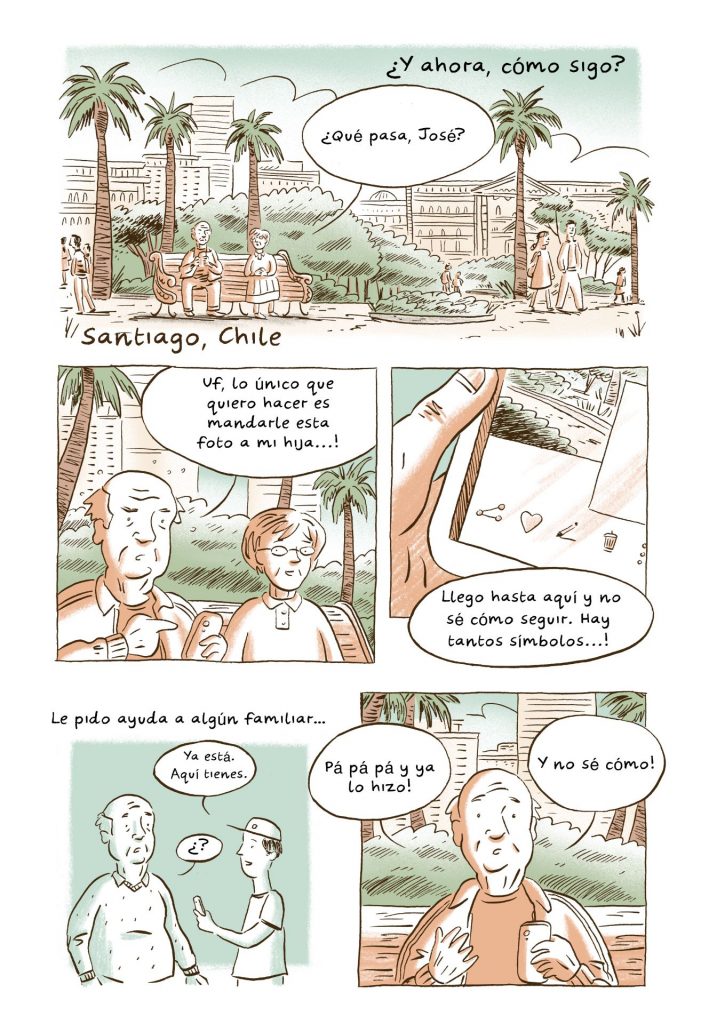Illustrating ASSA’s Findings With Comics: Part 2
By Georgiana Murariu, on 22 June 2021
By Georgiana Murariu & Laura Haapio-Kirk
In this blog post, we present the second comic in our series illustrating key findings from the ASSA project. ‘The Next Step’, based on research by Alfonso Otaegui, drawn by John Cei Douglas, and scripted by ourselves, can be seen below in both English and Spanish.
Alfonso Otaegui did his fieldwork in Santiago, the capital of Chile, where he spent a year volunteering at a cultural centre in the city, teaching older adults how to use smartphones. Alfonso has recently written about Chile’s increasing digitalisation of services and the government’s aim to become ‘paperless’ soon. Many of his research participants expressed the anxiety that soon they might be left with no choice but to use a smartphone to access specific services, even if they do not feel confident using one.
Alfonso has also written about how the COVID-19 pandemic has further accelerated the imposition of digital services upon people in Chile. Older people are not only strongly encouraged to become digitally savvy by their government, but also by their own family and other acquaintances in order to stay connected during the pandemic.
Alfonso’s experience teaching smartphones at the cultural centre has given him a wealth of insight into the sorts of things older people struggle with when they first learn how to use the device. One of the common struggles older adults encounter when learning to use the device is the experience of anxiety facing too many options, for example on a menu that offers several calls to action illustrated through icons. While doing an exercise on sharing an image, several students would be distracted by the vast array of other possibilities/icons.
It’s not all negative, however – far from it: Alfonso found that once older people had mastered the smartphone, their developing digital skills opened up all sorts of possibilities for them. As Alfonso put it in the short video below, at any given time, they are two taps away from frustration, and two taps away from empowerment.
It is this journey towards digital literacy that we wanted to illustrate in the comic below.
To script the comic, we used material from Alfonso’s photos, research, anecdotes and the short film above, deciding to create a character that combined many of the experiences of his participants. Using the direct quote “pa,pa,pa, it’s done!”, which came from an individual in Alfonso’s research, we shaped a character and narrative around this particular moment of frustration, which you can see below in both English and Spanish:
‘The Next Step’


‘¿Y ahora, cómo sigo?’


 Close
Close




